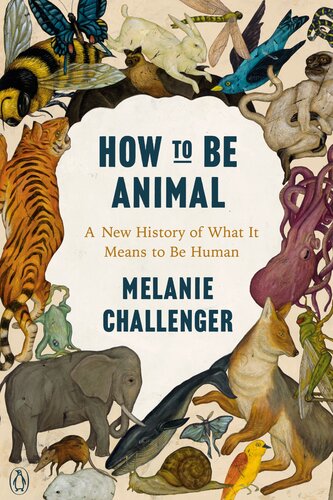
How to Be Animal
A New History of What It Means to Be Human
کتاب های مرتبط
- اطلاعات
- نقد و بررسی
- دیدگاه کاربران
نقد و بررسی

January 15, 2021
A searching examination of our intellectual divorce from the natural world. Humans, wrote scholar George Kateb, are "the only animal species that is not only animal, the only species that is partly not natural." Challenger, a British environmental philosopher, takes the idea and runs with it, noting that we are now the world's dominant animal species, but one that dismisses its animal-ness and regards its human status "as if it is a magical boundary." Yet recognition of our roots in nature is essential to a healthful relationship with a world that we have treated poorly for most of our history. Much as we might wish to separate ourselves, writes the author, there are definite aspects of animal behavior at work among our kind. "That we give each other love and support is a condition not of our rationalising," she writes, "but of our compulsions as animals." Challenger's book is full of asides that beg for development--her observation, for instance, that "culture's achievement is to store information outside the body" and that, whereas ants, as ubiquitous as humans, have diversified into more than 14,000 species, our species has speciated through cultural means--but she is convincing in her argument that we suffer from our divorce from nature. "Many of the tensions we experience derive from the dissonance inherent in being a predator with a rich moral faculty," she observes, wanton killers of nearly every other being on the planet while knowing that we are doing wrong. Challenger proposes ways to retool our thinking, including recognizing the emerging fact that animals possess consciousness (whales dream, wolves carry mental maps in their heads, and so forth) and acknowledging that human consciousness is just one aspect of "a spectacle of richness before us all the while." Throughout the book, the author invites us to accept our animal nature and the responsibility toward the world that comes with it. A welcome, well-considered contribution to ecological thought.
COPYRIGHT(2021) Kirkus Reviews, ALL RIGHTS RESERVED.

February 15, 2021
In this fascinating and cutting-edge meditation on humanity, British author Challenger presents readers with the truth of their animal lives. Drawing on generations of research in evolution, genetics, and philosophy, Challenger analyzes the human tendency to believe our experiences amount to more than animal entropy. Is it our sense of self or our technological innovations that make us greater than the rest of the animal kingdom? Is it more than the size and function of our brains? Through deep exploration of concepts like artificial intelligence, cloning, and genetic engineering, Challenger lays out all the ways humans have attempted to manipulate and rise above their natural order as animals on our planet. The book is humbling and serves up ample reminders of humans' role in the world as animals among other animals. It's timely as well, amidst the COVID-19 pandemic. It even briefly addresses the crisis and how a tiny virus causing mass death is a pivotal reminder of our animality. Every chapter is more riveting than the last, a truly remarkable read.
COPYRIGHT(2021) Booklist, ALL RIGHTS RESERVED.

Starred review from April 19, 2021
Why do humans consider themselves separate from the animal kingdom, and what are the implications of that, asks Challenger (On Extinction), an environmental philosophy researcher, in this winning rumination. Challenger opens with paradoxes: “The world is now dominated by an animal that doesn’t think it’s an animal. And the future is being imagined by an animal that doesn’t want to be an animal.” The belief that humans are superior to other animals, Challenger writes, has led to climate change, which puts all life in danger, as well as technological breakthroughs that allow humans to transform life, such as by cloning pets to “assuage the muddled grief of their owners.” She calls for humans to get back in touch with the “blunt realities of being an animal” and offers plentiful examples of animal ingenuity and complexity—such as the problem-solving capabilities of ants, and sea sponges that find means to outlast pollution—to illustrate that intelligence isn’t a strictly human phenomenon. Challenger convincingly demonstrates that “the human form of consciousness and its capacity to deliver meaning” doesn’t negate the natural world’s “spectacle of richness.” Impassioned and intelligent, this is a treatise with the possibility to change minds. Photos.

























دیدگاه کاربران